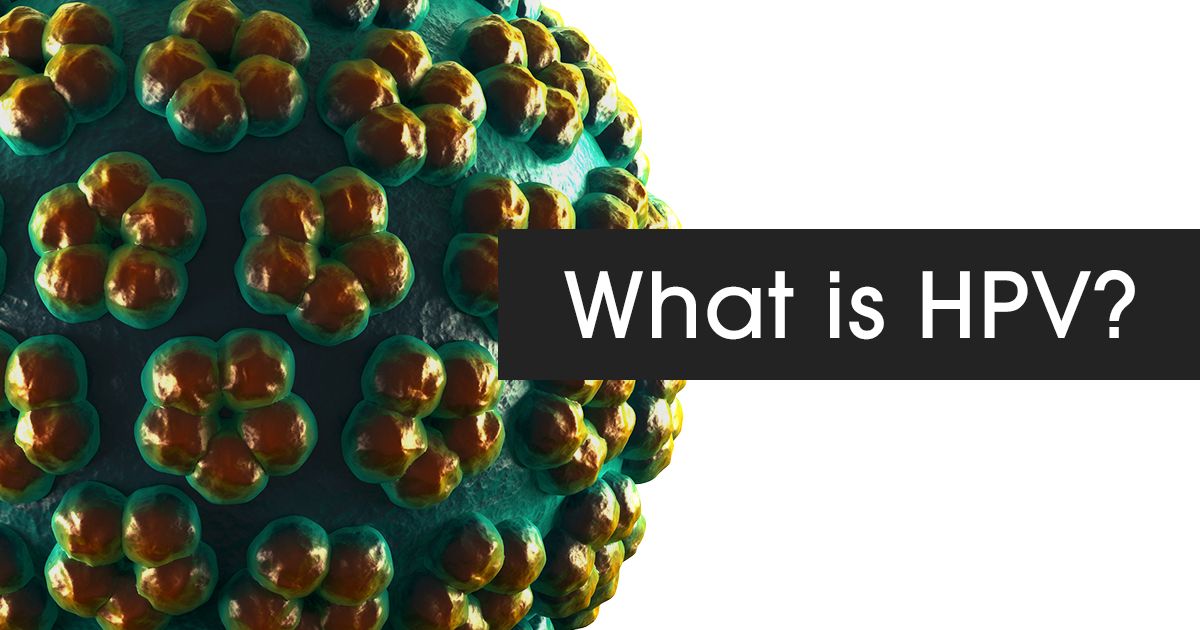Most people have heard of HIV, herpes, syphilis and gonorrhoea but most would be hard pressed to say what the Human Papillomavirus (HPV) is. However, you are more likely to encounter HPV than all the others combined. The Center for Disease control advises that HPV is the most common sexually transmitted disease in the USA and that most sexually active adults will come into contact with the virus at some point in their lives.
So what is it? It is a human specific strain of Papillomavirus, a closely related family of 150 viruses, 40 of which can cause genital infections in humans. It is named for genital warts (Papilloma) commonly seen on infection but is best known for its link to genital, particular cervical, cancer.
Like HIV, HPV can integrate into the DNA of the host cell, resulting in re-infection down the track. The problem occurs when it inserts into oncogene. Oncogenes are genes that are known to be linked to cancer either by being turned on and causing unstoppable growth of the cell, or turned off and stopping other genes from causing unstoppable growth in a cell.
Pap (Papilloma) smears are specifically designed to screen for cervical cancer caused by the virus but HPV can cause other cancers such as vulvar and vaginal, penile, anal and oropharyngeal cancer.
HVP is rare amongst STDs as a vaccine exists. The HPV vaccine was developed by Professor Ian Frazer and Dr Jian Zhuo at the University of Queensland. Dr Jian Zhou sadly passed in 1999 before he could see the vaccine in production. In 2007, the first vaccine hit the market under the trade name Gardasil and protected against strains four of the most dangerous strains in respect to causing cancer. As the vaccine is no use against previous exposure, it was recommended that girls be vaccinated in early adolescence before they become sexually active. In Australia, the vaccine was provided free of charge to girls and women 9-26 years of age from 2007. In 2012 this was expanded to included boys and men 9-26 years of age. In Singapore, the vaccine has been recommended for girls and women 9-26 years of age since 2010 and is covered by Medisave.
Should boys be vaccinated against HVP?
Singapore recommendations cover females aged 9-26 as the highest cancer risk with HVP is cervical cancer. The HVP has been shown to guard against 90% of all genital warts as well as as strains known to cause penile and anal cancers so a number of countries have widened the recommendations to cover teenage boys. As a human specific virus this does fall into one of the categories of diseases that can be eradicated with vaccination so the more people who have the lower the risk of it spreading through a population.
I am already sexually active, should I have the vaccine?
The vaccine will not protect against any contact you may already have had, but it will protect you in future sexual contact. If you fall within the age range >27 years it is believed that your chances of contracting HVP are low enough for the vaccine to be worth getting.
I use condoms, do I need to have the vaccine?
Condoms are always a good idea and protect well against most STDs as well as unwanted pregnancy. They are not a failsafe. Condoms can break or transmission can occur before or after use. HVP is one of the diseases where condoms are not completely effective. The latex provides a barrier to the virus particles but the virus is highly infectious and can occur via hand if genitals are touched or skin to skin if the lesion is on an area not covered by the condom. Even if you always used condoms it is advisable to have the vaccine and regular pap smears.
Do I need to have pap smears if I have had the vaccine?
Yes. The Gardasil vaccine is effective against the HPV viruses that cause 90% of genital warts and 70% of cervical cancer. But there are more than 40 strains of HPV. Those others will become more prevalent in the population as the ones covered by the vaccine disappear. The vaccine will significantly reduce your risk of cervical or genital cancer but will not eliminate the risk. There are other HPV strains and a pap smear will pick up abnormal pre-cancerous cells that are due to other causes such as inherited or spontaneous genetic cancers.
What age should I consider vaccinating my child against HPV?
The vaccine is safe from the ages nine up and I would recommend vaccinating your child between the ages of nine to twelve well before they become sexually active. It starts a conversation about the dangers of sex and let’s face it, it is easier to get a nine-year-old to the doctors for a jab than a fifteen-year-old. One less thing you have to worry about doing when they hit the difficult teenage years.
I have been saving myself for marriage, do I need it?
Abstinence is a sure fire way to avoid HPV. If you are not sexually active, you don’t need the vaccine. If you are due to get married, consider working it into your wedding plans. There are three doses so you will need to get the first one well before the honeymoon.
For further information see:
Singapore Government Health Promotion Board – HVP facts.
https://www.healthhub.sg/a-z/diseases-and-conditions/701/faqs-on-hpv-and-hpv-immunisation
Centre for Disease Control – HVP
http://www.cdc.gov/hpv/index.html
University of Queensland – Eliminating cervical cancer globally
http://www.uq.edu.au/research/research-at-uq/eliminating-cervical-cancer-globally


Pingback: Human Papilloma Virus (HPV): What to know